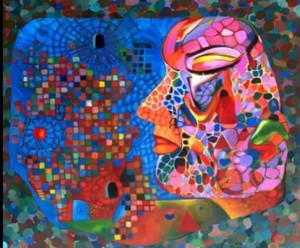Armanshahr/OPEN ASIA
8 March 2016
Once more 8 March has arrived, but we cannot celebrate equality yet. We celebrate 8 March every year to commemorate centuries-long struggles of women to achieve peace and equality and to remind all actors who mark the contemporary events: Inequality is still reigning in the most “equal” lands on the earth; women are still regarded as second-class citizens in the 21st century. At the heart of Asia, we have our eyes on the women of our region, whose freedoms and rights are still stoned every day and burned in flames of war, under pressures from political and ideological extremism, violence of politicians and discriminatory laws. Nevertheless, they do not step back from their struggle.
Our instruments for fighting inequality and injustice are still raising awareness and knowledge, and political, civil, cultural and economic participation. There is still a long way ahead. That is the reason why we publishers of women’s books report to the region’s women on the international experience of their sisters. By doing so, we offer a sample of other roadmaps to help women raise their voice and benefit from mechanisms that can put an end to patriarchal laws and sexual discrimination.
We are living in a region, where women have been and still are captives and pawns of ideological and power games. Nevertheless, they are still endeavouring responsibly daily in their individual and social life for a better future. We praise those women who do not stop even though their interests are being trampled upon under the boots of male-centred lawlessness. In this stage of life in our region, when women are the main victims, Armanshahr expresses gratitude for their diligence and activism by its International Simorgh peace award. Because, worldwide peace, justice and equality are not feasible without women, the decisive social force.
In Iran, despite decades of struggle and active participation in political, social, economic, academic and cultural life, women are still deprived of equal rights and are being increasingly deprived of those rights even further under the force of laws, policies and practices of the authorities, as well as the prevailing culture and customs that assist them.
In Afghanistan, there are numerous demands in all aspects of the social, political, civil, cultural and economic life as well as the next parliamentary elections. Despite the cultural and political hurdles, women are endeavouring to combat the culture of war, to influence the country’s future course and to uproot violence.
In Tajikistan, despite the progressive laws in force, women who shoulder the main responsibility during the current economic crisis, are still victims of violence and marginalised. Thus, the laws remain only on paper and they do not benefit from them, because they lack a women’s movement.
We believe, we have to assess women’s fate within a body of cultures that have inspired one another. It is the duty of the previous generations to feel responsible for the new generation and to provide the fighting men and women with their experience to enable the society to pursue the implementation of the laws against violence, discrimination and inequality and rise to bring about change. Women have always been at the forefront of the risings.
The biggest political challenge in the world is still the failure to include women in power and major decisions. Domestic violence, low level of literacy, illiteracy and economic inequalities are still rampant at every corner of the globe. Nevertheless, as players of our age and consistent militants against all forms of violence and discrimination, we shall clinch our fists on 8 March and chant the song of peace and equality. We stretch our hands toward every single equality seeker to demonstrate together that knowledge and consciousness shall finally triumph over centuries of patriarchal oppression.
Happy 8 March 2016 to all men and women who seek freedom and equality!


